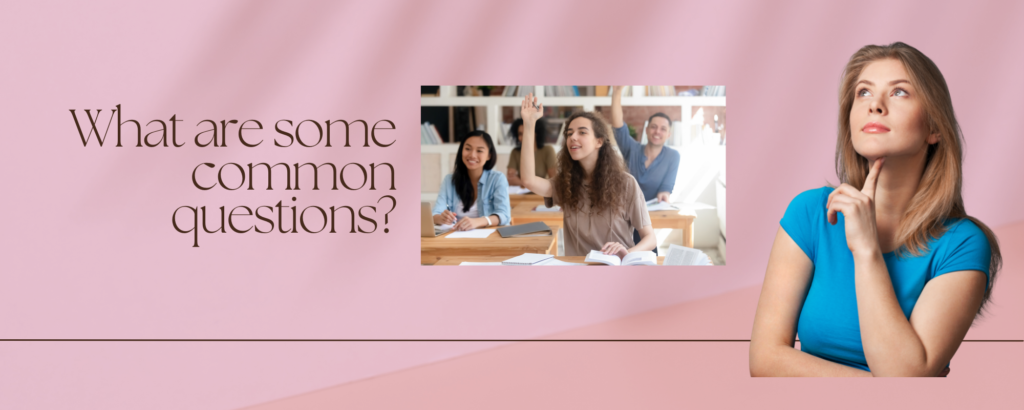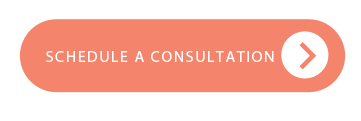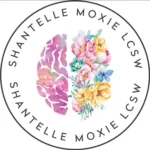
What happens during the free Consultation Call?
The purpose of the free consultation call is to gain a better idea of what your teen’s needs are and exploring whether it’s a good fit to work together.. On the call, I’ll ask in-depth questions, tell you more about what it’s like to work with me, and answer any questions you might have. After this call, we can decide to move forward together or not. There is no obligation for you to commit to working with me.
After the intake, what happens next?
Once your teen is accepted into the program, I will send you the Consent Forms and Policy (which you will sign via a secure HIPPA compliant portal).
Do you accept insurance?
Please see HERE for more information on Insurance and Fees.
How long therapy?
This is designed to be a short, solution focused program, approximately 12-18 weeks. If you need more sessions, that’s fine. We can continue as long as you need. If you need less sessions, that’s fine too.
What if I want to cancel?
I request at least 24 hours advance notice to cancel/reschedule appointments; otherwise you/your insurance will be billed for the full session.
What actually happens during the sessions?
Here is an example of a typical 50-60 minute session…
- First do a brief check-in. What’s better since we last met?
- Review the homework assignment and discuss wins and challenges
- Determine the goals for the current session and discuss that session’s topic
- Agree on homework for the upcoming week
- Summarize the session
Why is there homework?
I understand the demands on a teen’s life and I don’t want to add another stress on their life. The homework assigned is simple and often can be done throughout day-to-day life. For example, you got upset during the week-what happened, what skill did you use, was it helpful, etc.
If for some reason, the homework is not completed, teens won’t get a bad grade. We’ll try to figure out what got in the way, so they will be more likely to complete the homework the following week.
When are the sessions and how long do they last?
We can schedule weekly or bi-weekly sessions. The intake sessions last 60-80 minutes (to gather as much information as possible). The subsequent sessions last 50-60 minutes.
We live in another state. Can my teen participate?
We currently only accept clients who reside in the state of Florida. However, our GLOW course is open to anyone worldwide.
What are the age requirements?
The program is for girls 11-18.
Is there a program for parents?
I am currently developing the parenting education and coaching program. Sign up for our mailing list to receive notice when the program begins.
Will I have to take medication?
Being seen for psychotherapy by a counselor does not necessarily mean you will need to take medications. Many psychological problems can be successfully treated without the use of medications. If you and your counselor decide that medications should be considered as a adjunct to counseling, your counselor will discuss referral options with you. You will need to see a physician (such as a psychiatrist) to be prescribed any medications. It is important to let your counselor know about any medications you have already been prescribed.
How long before I see results?
I cannot guarantee quick results. But here’s the secret: if your teen attend the sessions and do the homework, she will be able to see changes in her life. The more your teen learns and practice these skills, the better she will feel…trust me!
What are your counseling specialties?
I utilize a combination of the evidenced based modalities of Cognitive Behavioral Therapy (CBT) and Solution Focused Brief Therapy (SFBT).
CBT helps you identify how your thinking influences how you feel and act. With CBT, we identify and change negative thought patterns and maladaptive behaviors, so that you can have a more healthier perspective. CBT is structured, focused, directive, and based on your values and goals. It also involves homework sometimes, such as tracking your thoughts and acting towards your goals. CBT is also the gold standard for treatment of depression and anxiety and is empirically validated by many studies.
SFBT is future-oriented and goal oriented as well. We focus on your strengths, resources, past successes, and coping abilities. It focuses on how you have successfully handled similar situations in the past, and always asks the question, “when is the problem not happening or when is it less upsetting?” This can be more empowering for you when you forget how resourceful you are.
What about confidentiality?
All client-therapist conversations are private and confidential. It is also confidential information that a person is meeting with a therapist. No information is disclosed without prior written permission from the client (or parent if client is a minor). However, there are some exceptions required by law to this rule. Exceptions include:
- Suspected child abuse or dependent adult or elder abuse. The therapist is required to report this to the appropriate authorities immediately.
- If a client is threatening serious bodily harm to another person. The therapist is required to notify the police.
- If a client intends to harm himself or herself. The therapist will make every effort to work with the individual to ensure their safety. However, if an individual does not cooperate, additional measures may need to be taken.
As parents, will you tell us what our teen discloses in therapy?
Parents are informed, as is required by law, if the teen is a danger to themself or others. It is important that the teen has a safe, private space to work on his goals. For therapy to be successful, the teen must be able to talk freely, without feeling like what is shared must be censored for fear of disclosure to parents. Therefore, if we see a teen for individual therapy, we will not disclose information to the parents without the teen’s consent unless we believe that the teen is a danger to himself or others. Some disclosure by the teen can be extremely helpful in facilitating a trusting relationship between the teen and the parents and we will work with the teen to encourage this type of disclosure. With the teen’s consent, we will also give the parents periodic updates on the teen’s therapeutic progress. We encourage the parents to call us with any questions or concerns throughout the course of treatment.
How is online anxiety therapy different from traditional in person counseling?
Other than not being in the same room, there is little difference. There are some advantages to online counseling that are worth mentioning such as:
- Video chatting mimics the way kids and teens are most comfortable communicating with friends.
- They may feel “safer” than visiting an office and talking to an adult in person.
- Online therapy can feel more confidential, making it easier for kids and teens to share difficult feelings.
- Kids can relax in a familiar environment and surround themselves with pets and favorite toys.
What technology will my teen need to participate in the program?
- A computer or device that your teen can access the online platform
- High speed internet connection
- Headphones/earbuds with a microphone
- A device with a camera
- Optional: access YouTube to watch suggested videos
Is the online platform secure?
I use a confidential, HIPAA secure video platform.
What other materials does my teen need?
A journal or notebook is recommended. This is in addition to the guided practices and activities I provide.
What if my teen doesn’t want to appear on camera?
We understand that being on camera can create a lot of anxiety. Having to share their thoughts, feelings, and experiences can be extremely triggering, but we require that the teen’s camera is turned on. I need to be able to see your teen to assess her mood, affect, and body language- things I cannot assess if simply listening to a person’s voice.
Can my teen catch up on other things, like homework or chores, during the session?
No. To get the full benefit of the program, teens should be fully engaged and not distracted. Just like your teen wouldn’t do homework during a face-to-face therapy session, she should be fully focused during online therapy. In addition, it is not respectful if someone is visibly not paying attention.
Teens should be in a secure location and not driving, or engaging in activities where their lives could be at risk if they become emotionally upset. Therapy is important and will need their full attention.
Go from panic to power!


